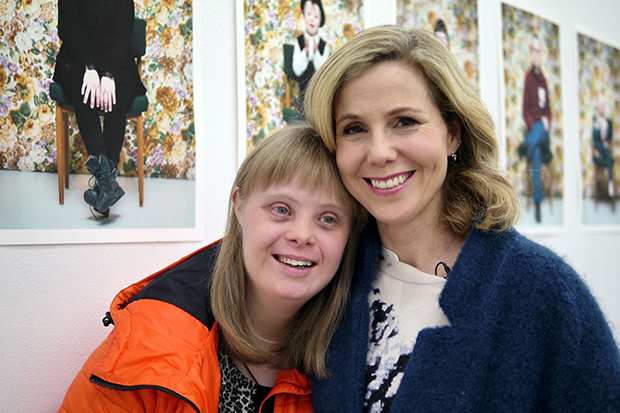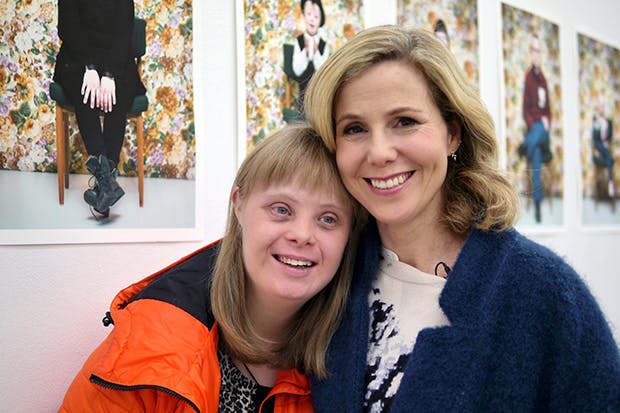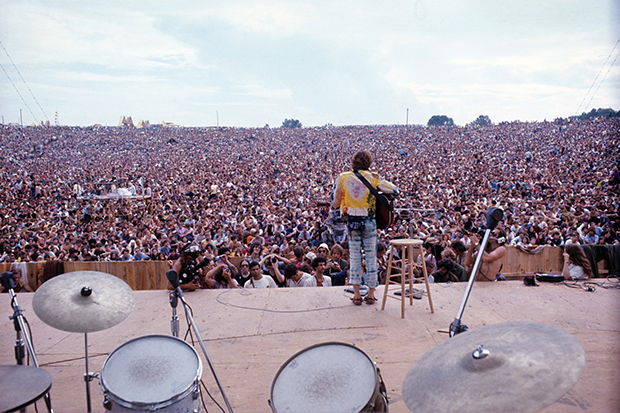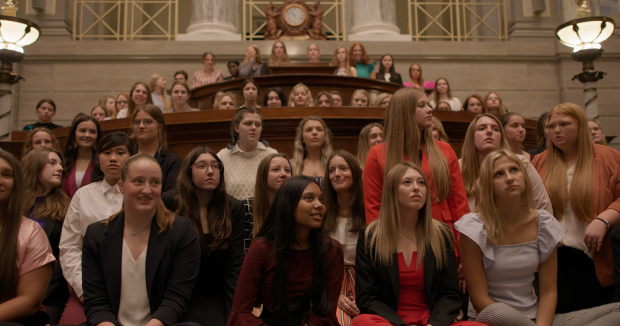At my wife’s first 12-week scan, I was expecting — and duly got — that much-documented sense of thrilled wonder at the grey blobby thing on the screen. What came as a genuine shock, though, was realising the scan also had the entirely undisguised aim of calculating the baby’s chances of Down’s syndrome, on the apparent assumption that, if they were high, we’d want to terminate.
In the event, this wasn’t a dilemma we faced — which possibly makes it easy to take the moral high ground. Even so, the whole process left me feeling both uneasy and rather naive. How long had this been going on? Did everybody else know about it? And if so, when had they discussed it?
A World without Down’s Syndrome? (BBC2, Wednesday), presented from the heart by the actress Sally Phillips, starkly answered the first and third of these questions: screening for Down’s was introduced in Britain 30 years ago, and there was no public discussion at all. Like me, you might also not have noticed that the government recently gave the go-ahead for a more accurate form of screening on the NHS. Described as ‘the most exciting development in pregnancy care for decades’, it’s similar to the kind available in Iceland, where the termination rate following a Down’s diagnosis is now 100 per cent.
Phillips began the programme by showing us film of her 11-year-old Down’s son Olly telling jokes (not very good ones, admittedly), playing with his siblings and generally charming the pants off us. ‘I was expecting tragedy,’ said Phillips, amid the happy chaos, ‘but I got comedy.’
From there, she headed for the more orderly world of King’s College Hospital to ask Professor Kypros Nicolaides, a foetal-screening specialist, ‘What’s so very dreadful to the world about Down’s?’ In fact, the Professor didn’t look best pleased at having his authority questioned by a woman whose only qualification was loving her own Down’s child ‘more than life’. Nonetheless, he managed to stay calm as he pointed out that because such children sometimes ‘live for very many years’, they can be ‘a burden to a family and society that lasts a very long time’. Besides, he assured Phillips, the whole idea of screening is simply to offer women more choice.
And choice, of course, was the explanation put forward by all the medical professionals that Phillips questioned — even if none appeared in much doubt as to what the choice should be.
As her investigations continued, Phillips often seemed understandably tempted to abandon her patient quest for information in favour of a full-on rant. Nonetheless, by resisting the temptation and sticking determinedly to quiet reasonableness, she ended up raising a powerful, if perhaps rather lonely voice against the apparent consensus that a Down’s child is a disaster to be avoided at all costs. By the end, I really wasn’t sure how future generations will judge our attitudes. It does seem likely, however, that the generations in question will contain far fewer people with Down’s syndrome.
Now, there can’t be many BBC4 documentaries about trains that are too controversial to repeat. But one that hasn’t been shown since September 2012 was about the launch of InterCity 125 in the 1970s. Because this was so crucial to the future of British Rail, the company had to make sure it got the right person to front the advertising campaign. After exhaustive research, it established with some certainty that the single most trusted person in Britain among all ages and social groups was Jimmy Savile.
Needless to say, this gives the lie to the consoling myth that ‘we all knew’ there was something dodgy about the man. It also sprang inevitably to mind during Sunday’s Louis Theroux: Savile (BBC2) in which a shame-faced Theroux revisited his 2000 documentary When Louis Met Jimmy — and the semi-friendship that later developed — to try and work out why he, too, was fooled.
Theroux obsessively scrutinised some of his old footage that hindsight reveals as distinctly sinister. He spoke to a number of Savile’s victims, all of whom found the original documentary almost laughably gullible. He also heard from a couple of Savile loyalists, including his former PA Janet Cope, who remains convinced that the stories about his sexual abusiveness are ‘made up’. (‘Is it possible you’ve lost your objectivity?’ asked Louis through the most gritted of teeth. ‘What makes you ask that?’ replied Janet in a puzzled voice.)
Above all, though, Theroux agonised — honourably, thoughtfully, but in the end inconclusively. Which, I would suggest, is about the best he could have done. True, the programme was often confused and contradictory (as well as riveting). Yet, given the sheer weirdness, and maybe even the irreducible mystery, of Savile’s ability to get away with his crimes, what else could it — or should it — have been?
The post Question time appeared first on The Spectator.
Got something to add? Join the discussion and comment below.
Get 10 issues for just $10
Subscribe to The Spectator Australia today for the next 10 magazine issues, plus full online access, for just $10.
You might disagree with half of it, but you’ll enjoy reading all of it. Try your first month for free, then just $2 a week for the remainder of your first year.














Comments
Don't miss out
Join the conversation with other Spectator Australia readers. Subscribe to leave a comment.
SUBSCRIBEAlready a subscriber? Log in